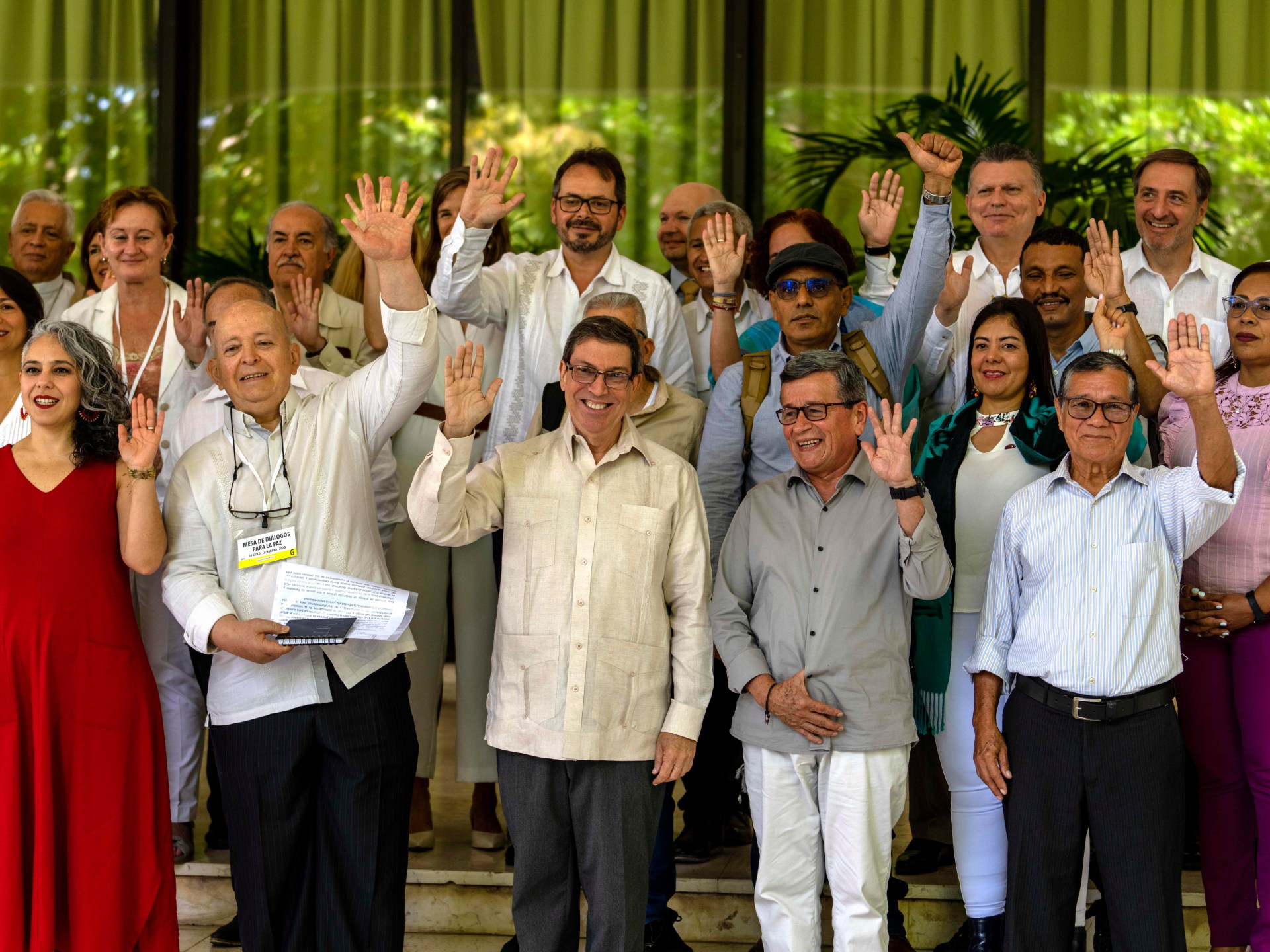Calls for ceasefire at start of latest Colombia-ELN peace talks
Colombia’s government and the left-wing National Liberation Army (ELN) rebel group have begun their latest round of peace talks, with both sides saying they hope to reach a ceasefire agreement.
Tuesday’s talks in Havana, Cuba, mark the start of the third round of negotiations and the most recent attempt to end decades of violence in Colombia.
Speaking on Tuesday from Madrid, Spain, Colombian President Gustavo Petro — a left-wing politician who entered office saying he would seek “total peace” in the country — outlined a proposal for a gradual ceasefire.
“You can start with regional ceasefires and, as time goes by and trust is built, we can move on to extending them throughout the national territory,” he said.
A day earlier, the head of the ELN delegation, Pablo Beltran, said a successful ceasefire is necessary to win over the confidence of the Colombian public.
“We want … the Colombian people to see a ceasefire is possible, and that we have agreed to comply,” Beltran said. “This [would be] a preliminary ceasefire, not an end to the conflict, so we are interested in it working 100 percent. That is, zero errors.”
The statement came after an ELN attack in late March killed nine Colombian soldiers and threatened to derail the negotiations just weeks after a second round had been completed in Mexico City. An initial round of talks took place in Caracas, Venezuela, late last year.
While both sides had hailed progress at the end of those talks, Colombia’s government has said March’s ELN attack damaged confidence in the group’s commitment to peace.
On Monday, Beltran said that the attack was defensive, brought on by an “offensive campaign” from Colombia’s military. He added that ELN fighters had also been killed since the latest round of talks.
“For now, there is no ceasefire. And operations on both sides continue,” Beltran said.
Nevertheless, he said it “is possible to move forward” with dialogue under Petro, the country’s first left-wing leader and a former M-19 rebel himself.
“We feel like partners of the government,” Beltran said.
In a tweet, Cuba’s foreign minister, Bruno Rodriguez, said that Havana looked forward to hosting the talks, which are being overseen by Mexico, Venezuela, Chile, Norway and Brazil.
“We firmly believe that the Colombian people deserve peace and that they can achieve it,” he said.
The ELN, founded by Catholic priests in 1964, is the country’s largest remaining rebel organisation.
It is believed to have about 2,500 remaining fighters and has been accused of financing itself through drug trafficking, illegal mining and kidnappings.
Negotiations with the group had faltered under previous administrations, usually due to dissent flaring within the group’s ranks. Leaders have said all its fighters are on board with the most recent talks.
In 2019, conservative former President Ivan Duque called off peace talks after an ELN car bomb attack killed 22 people at a police academy in Bogota.
Petro, who won the election in June, has said he plans to fully implement a peace accord signed in 2016 with the now-disbanded Revolutionary Armed Forces of Colombia (FARC) group, which was once the country’s largest armed group.
At the beginning of the year, Petro’s government was forced to backtrack claims that a temporary truce had been achieved with the ELN and other groups. The ELN denied that such an agreement had been reached.
More than 450,000 people have been killed in nearly 60 years of armed conflict in Colombia.


